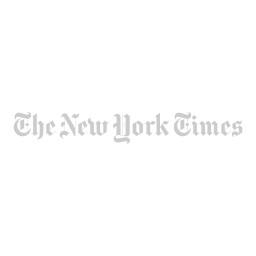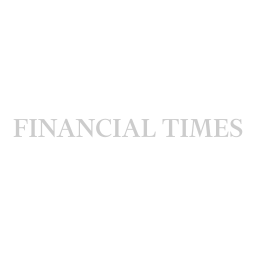Wedding Spending Is Down: 6 Things You Can Do • No. 5
Photo by Cameron Clark
Here’s some not exactly splendid news: wedding spending is down in every budget category across the board, with the exception of the Ultra Luxury Wedding segment (budgets of $500,000+, not including the honeymoon).
Economists have been forecasting a recession to hit towards the end of 2019 for a while now, and while those predictions are not always accurate, wedding spending tends to be a canary in the coal mine for how people are feeling about their financial future.
At the end of my 2019 State of the Wedding Industry post, I outlined six things wedding professionals will need to do in order to navigate the coming uncertainties. In this blog series called 6 Ways to Survive a Recession, I’m diving into each one a little bit more. Here’s what’s been previously covered:
Get super clear about what your brand is about and adjust your messaging accordingly.
Diversify your marketing and play the long game by building equity in the brand house you own.
Cultivate an inclusive community that authentically cares about something beyond themselves.
The fifth thing you should focus on is this:
Acknowledge that true experts never stop learning and work relentlessly on pushing yourself to be better.
It is true that not every wedding professional is an expert. It is also true that there are a ton of wedding professionals who are experts but who refuse to identify as such.
True experts:
Are consistently good at what they do
Have a proven track record
Have the skills and knowledge base necessary to make solid, effective decisions on the fly when things don’t go as planned
Can go beyond reciting facts and information
Know how to approach and adjust for nuanced situations
Never advocate one-size-fits-all solutions
Are insatiably curious and always finding ways to improve (to paraphrase an old saying, “An amateur works to get it right, a professional works to never get it wrong.”)
If you read this list and realized you are not yet an expert, that’s totally fine. Now you have a goal to work toward.
If you meet all the criteria of this list and are still uncomfortable calling yourself an expert, I’d encourage you to dig into why that may be so that you can get to the root of that discomfort. Does it comes from your people-pleaser tendencies and not wanting anyone to dislike you? Does it come from a misunderstanding of what true humility is? Does it come from a teacher telling you that you would never be the best? Does it come from a parent or sibling never letting you upstage them? Does it come from giving imposter syndrome too much power? Does it come from a fear of gossip from colleagues or friends who don’t necessarily want to see you fail, but definitely aren’t okay with you outpacing them?
Consider this: Warren Buffett and his long-time business partner Charlie Munger are very open about the fact that they read voraciously, each devoting about 80% of their day to reading. Are we going to say they aren't experts at finance or investing because they set aside so much time to continue learning? Of course not.
Buffett and Munger are both experts at what they do and part of what makes them so successful is that they know that no matter what they’ve done, how many billions of dollars they’ve each made, there is always more for them to learn, more areas in which they can improve.
If you think you’ve “arrived,” you’ve settled. Calling yourself an expert and then resting on your laurels holds you back. Refusing to call yourself an expert also holds you back. False humility can harm you just as much ego can.
Photography by Cameron Clark
Setting Yourself Apart From the Charlatans
Ten years ago I spoke on a conference panel with two other industry colleagues. The panel was offered as a breakout session option, with us basically repeating the same presentation three times that day to three different groups of attendees. We had a phone meeting prior to the conference and nailed down what each of us would cover. The first breakout session went great, with each of us following our pre-determined topics, me speaking last. During the second session, the first panelist started talking and instead of giving her topic, decided to parrot exactly what I had said in the first breakout. Fortunately, because I am expert at what I do, I was able to draw from a deep well of knowledge and didn’t have to rely on my prepared notes and talking points that she decided to present as her own.
The wedding industry is full of true experts who are creative and who help raise the bar for everyone. Unfortunately, it is also full of charlatans. And for people who don’t know what they don’t know about what you do – which is almost all wedding clients – you will have to show what sets you apart from the fakers and the takers.
In order to do this you need to know your field, your subject, your product, your process inside and out. You have to be able to roll with the punches and be able to say, “Don’t worry, there is way more where that came from” when someone copies or straight up steals from you.
You need to know how to handle a situation where your roll of film malfunctioned and didn’t capture the couple’s ceremony kiss. You need to know how to securely rig a truss so that you don’t get every other designer banned from hanging floral chandeliers in that venue in the future. You need to know what to do when the fire inspector shuts down your production installation three hours before the wedding begins. You need to know what to do when you find the groom passed out from a cocaine overdose.
And yes, all of these are true examples of things that have happened.
I shared a story previously in this series about how being copied hurts and how Tory Burch still gets bothered by it. And while that is true, and while you should do what you need to to legally protect your intellectual property, the very definition of being a trendsetter means setting the trends for others to follow. If no one is doing what you’ve done, then you did not set any trends at all.
If you want to be a trendsetter, you will need to stay ahead of what everyone else is doing. This means constantly pushing yourself to learn more and approach things with a level of curiosity that the average professional either does not have or is too lazy to exercise.
On a related note, over 90% of journalists, editors, and producers use the term “expert” when they are researching sources for features and stories they’re working on. If the only people willing to call themselves experts are the charlatans, you only have yourself to blame when editors and journalists call them for an interview instead of you.
Image by Cameron Clark Photography
Letting Go of the Myth That Time = Expertise
We need to let go of the myth that length of time in a job automatically translates to deeper expertise. Yes, we all learn a certain amount through trial and error, and those lessons come with time. We also all know people who have been around forever who are simply not great at what they do.
During the 2008 recession, many young event planners making 6-figure salaries at banks and Fortune 500 companies where they planned 200+ events a year were laid off, thanks to the fine print in the bail-out laws that penalized corporate event spending. When they decided to open their own planning businesses in order to pay the bills and as a way to scratch the creative itch they had missed in the corporate world, many in the wedding industry wrote them off as "newbie millennials" when in fact their expertise could run circles around some of the industry veterans.
A person who planned close to 1000 events in the 3-5 years they worked in-house at a corporation has the skills required to plan a complex wedding. They already know all about permit processes, load-ins, power supply, union labor laws and exemptions, complicated budgets, multi-page schedules, etc. They can do all this in their sleep.
Length of time in a field can only make you an expert if you are committed to learning from your mistakes, changing things so they aren't repeated in the future, and remaining insatiably curious so that you are always thinking through how to make things better or different.
Photo by Cameron Clark
Selling Your Expertise to Gen Z
Gen Z is the "activist generation" (I sometimes refer to them the "get s*** done" generation) and they expect the experts they hire to be able to do things, not just know things.
For Gen Z, expertise is a given, much more so than it was for millennials. Millennials want the best and consider custom to be standard, not an upgrade.
Gen Z not only expects custom to come standard, they expect you to be constantly upgrading your own knowledge. If millennials were the MySpace and Facebook generation, Gen Z is the YouTube generation. It is their preferred social network, their preferred search engine, and their preferred method of learning and sharing what they learned.
Millennials primarily consider DIY to be a creative outlet rather than a money-saver, thanks to watching Martha Stewart or the original Emeril cooking shows growing up. Gen Z considers DIY to be a part of their every day life. Their favorite TV shows are Chopped, Chopped Junior, Nailed It, Cake Wars, Amy Poehler’s new crafting show Making It, Project Runway, etc, and then they take to their own YouTube channels to show off their own creations and teach others what they’ve been learning. For Gen Z, being creative isn’t an outlet for when you need to relieve some stress, it’s very much just part of who you are as a person.
If your expertise is limited to who you know or to basic information, the days of being able to monetize that are over. If it can be found on Google, you cannot charge a premium for it. Period.
For Gen Z especially, you will need to show why you are an expert and that you have the ability to do what they are envisioning. This needs to happen in the marketing, sales, and in the working together stages of your entire process.
During the sales process, the ability to show your expertise is going to be in direct correlation to your ability to listen deeply.
You already know that the number one mistake wedding pros make is sending pricing right away without having a real conversation with the potential clients first to figure out what they really need from you.
Another common mistake is expecting potential clients to have things figured out before they meet with you. Maybe they do, but most often the ideas they have are lovely in theory but won’t work in practicality. To figure out what they really want and how they approach decision making, it’s wise to ask questions that may seem “fluffy” or superficial. The fact of the matter though is that we as humans are relational beings first, and task-driven second.
One question almost every wedding pro should ask a prospective client is how they met and/or the story behind the proposal. You’d be surprised how many wedding sales conversations don’t include this at all. If the bride or groom gives you a clipped answer (“Online.” “At church.” “At work.”), move on. Otherwise, let them talk.
You can learn a lot about people from this question, including what type of restaurants they enjoy, what they do for fun, family dynamics (rule of thumb: if someone proposed in front of their entire family, they will typically have more than the average amount of decision makers weighing in on wedding decisions – something you definitely need to know that they may not be able to consciously pinpoint), etc. Plus these questions give you the perfect opportunity to show your expertise based on various points in their story:
"It sounds like you both really love being outdoors, but you're getting married in February. Let me show you some photos of how we transformed a ballroom to look like a garden. It was a three day install and we had to fly these particular flowers in from Honduras. We'd need to plan for a longer lead time to make sure the rentals don't get grounded by UPS because of a snowstorm, but our process takes all of that into account so you won't have to worry about it at all."
By simply letting them talk about themselves and listening to their stories, you are able to show your expertise by tying it to particular details rather than just saying "We do this, this, and this."
After this, it’s not unusual to get a reply along the lines of: “OMG, I never knew so much went into all the pretty photos I've saved on Instagram and Pinterest.”
Let your competitors ask questions that demand the clients have decisions made already. Your job is to be their guide, no matter your field. They have likely never planned an event of this scale before. They have likely never spent more than a few hundred dollars on photography, and those experiences were probably in a studio or for no more than an hour at a time of day that had perfect light. They likely don't know that they should reserve more shuttles because the country club they've chosen as their venue is easy for their destination guests to get to during the day, but tough to depart from at night because of the curvy mountain roads and fewer street lamps thanks to the city's light pollution ordinances, not to mention the open bar factor on their guests' sense of judgment. They likely don't know that the specific flowers they saw in a styled shoot and now want at their food stations for their courtyard reception attract bees.
Your job as a planner or photographer or transportation company or florist or caterer is to guide them through these decisions. You are not an order taker. You are the expert. There are plenty of wedding pros who cost a lot less than you do who would be a better fit for a couple who just wants someone to do exactly what they say, no questions asked, no expert input required.
If you are going to charge expert-level prices, you need to provide expert-level work. In contrast to this, if you are not an expert, you need to be charging amateur prices. Hopefully you’re able to get past whatever hangups you may have about calling yourself an expert. The wedding industry is better when the creative entrepreneurs in it confidently bring all their gifts to the table.



















